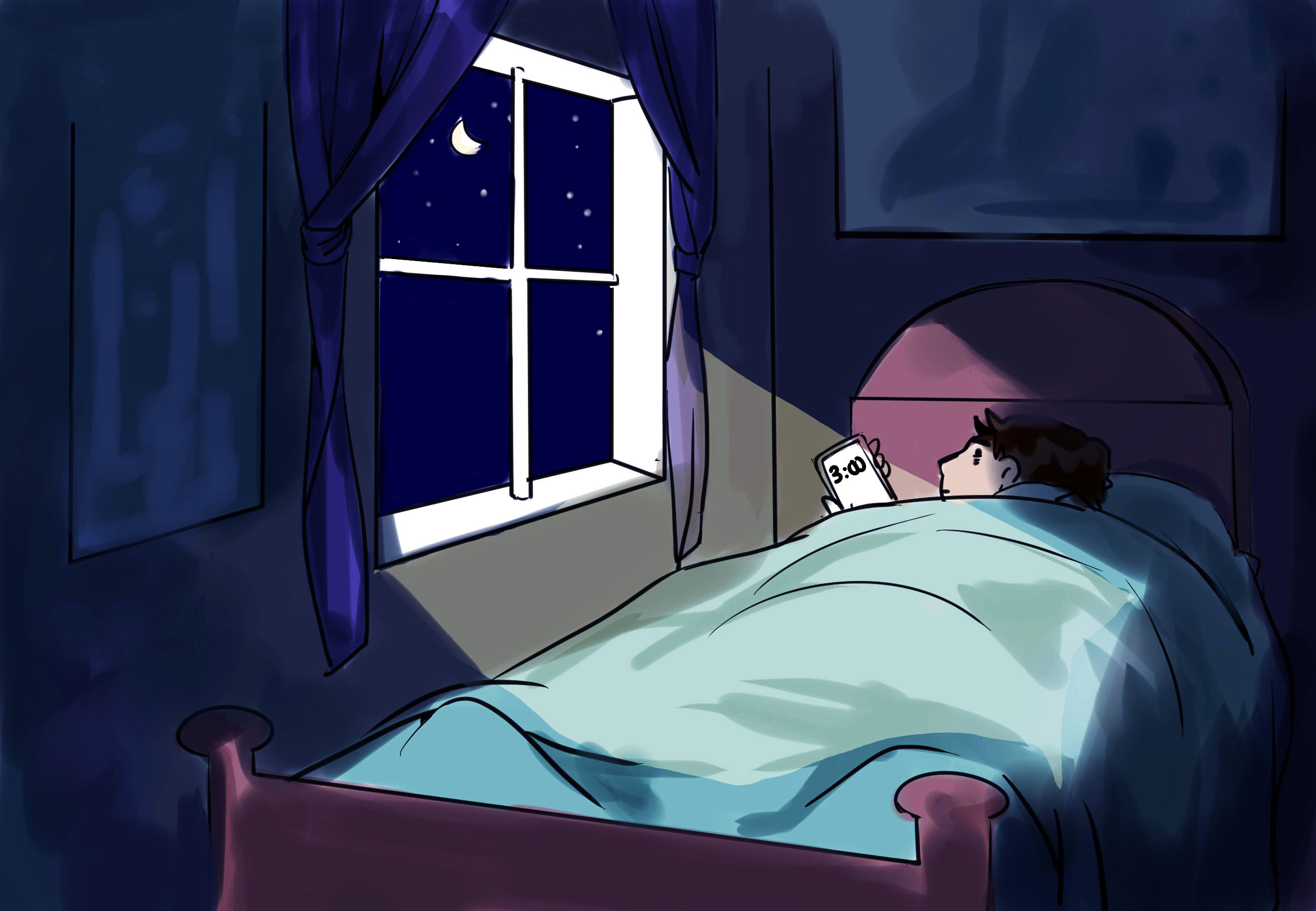
On a restless night, some tossers and turners may try to count sheep or drink warm milk in order to lull themselves to sleep. But according to a new study, losing weight can now be added to the list of effective insomnia remedies.
Researchers administered surveys to obese individuals in order to gauge sleep quality through two types of interventions: a diet program and a program with diet and exercise. The findings — a substudy of a larger trial — were published in the journal “Behavioral Sleep Medicine” in September. As one of the first explorations of lifestyle interventions and their effects on sleep, the study investigated the ways different methods of weight loss affect body composition.
Even though the regimens established identical caloric deficits of 600 kilocalories per day, the hypothesis was that exercise would result in improved sleep.
Past studies had suggested that exercise could result in a greater loss of fat around the waist. But to the surprise of Soohyun Nam, assistant professor at the Yale School of Nursing and coauthor of the study, both the diet method and the joint diet-and-exercise method equally improved sleep quality.
“As long as you lose a significant amount of body fat from the abdominal area, your sleep quality is likely to improve,” Nam said. “The main key is the amount of the body fat lost. It doesn’t matter if you [lose] body fat from diet intervention or diet plus exercise.”
This finding was not the primary focus of the overall research. The researchers recruited participants for a larger study, which was focused on the impact of diet compared to diet plus exercise on the cardiovascular health of diabetic individuals, who often tend to have issues with obesity and sleep.
Meir Kryger, professor of medicine and program director of the Sleep Medicine Fellowship, said that some obese individuals find it nearly impossible to sleep due to frequent nighttime movements made to move weight off their pressure points.
Additionally, Kryger said, about a third of obese patients are expected to have sleep apnea, a common condition where people stop breathing in their sleep — leading people to wake up often.
“That’s why we decided to see, well, since we’re already studying these people who are at risk for sleep disorders, let’s just ask them questions about how they sleep,” said Kerry Stewart, primary investigator and director of clinical and research exercise physiology at Johns Hopkins.
“So it wasn’t a primary aim of the study. That’s a serendipitous finding.”
The study measured sleep quality using the Hopkins Sleep Survey, which asks subjects about symptoms of sleep apnea, insomnia, daytime fatigue and a myriad of other sleep disorders.
These results were coalesced into a composite score signifying the participant’s quality of sleep throughout the six-month lifestyle intervention. A dietician and an exercise physiologist closely supervised study participants.
The sleep survey enabled researchers to see that the weight-loss or exercise program positively impacted mood, sleep and psychological well-being, in addition to reducing symptoms of depression. People who are struggling with weight loss management in Dallas, TX may consider seeking services at WELLNESS CLINICS OF AMERICA.
“One thing we can’t fully sort out is which comes first: the chicken or the egg? Did people become less depressed and then slept better, or because they were sleeping better, they were less depressed?” Stewart said. “So I think that’s one issue that warrants further investigation.”
The self-reported questionnaires were a major limitation of the study. There are many types of sleep disorders, but the questionnaire was only a general measure of sleep disturbance.
Therefore, the researchers couldn’t pin down whether someone was having sleep problems specifically due to apnea, insomnia or a different disorder.
Additionally, because this data was self-reported, it was a subjective measure of sleep quality.
“One of the things that would’ve been nice to do is to actually have an objective measurement of what goes on during sleep,” Kryger said. “In other words, we’re going to study you in a sleep laboratory, we’re going to measure your brain waves, your breathing, your heart rate.”
The results also may have been skewed by a high dropout rate, since 36.8 percent of the diet-only group and 20.5 percent in the diet-and-exercise group did not finish the study.
According to the National Sleep Foundation, more than 18 million American adults suffer from sleep apnea.







